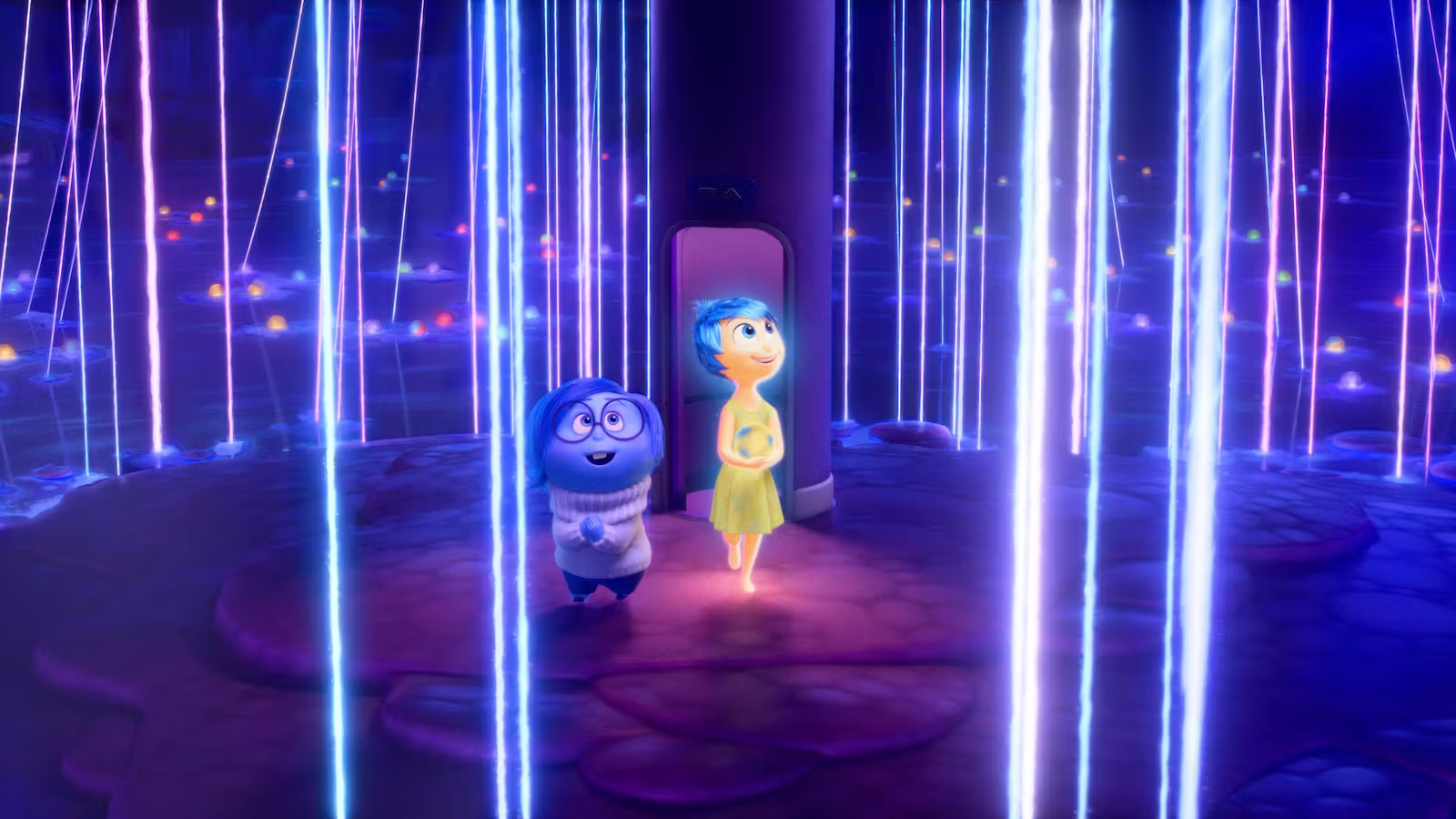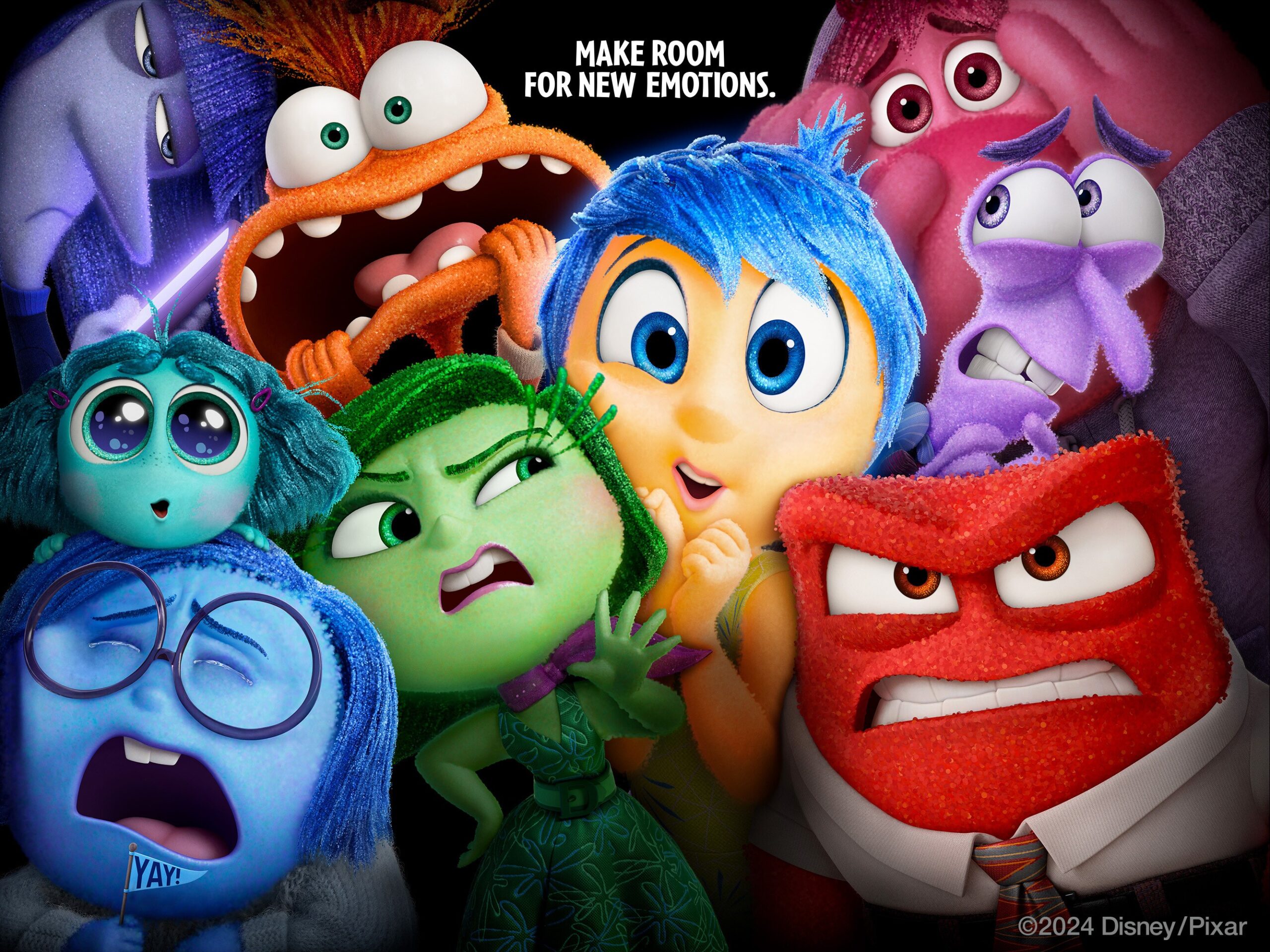The first Inside Out movie came out when I was 13. I am now 22 years old and the movie still has a chokehold on me. So of course, I had to drag my friend to the nearest cinema so she could experience whatever masterpiece Pixar had just released (with me). And the only part of it I regret is the part when I had to covertly wipe my tears. Yes, I know it’s a universal experience to cry during a Pixar movie but the older I get, the less I want people to see me cry.
And honestly, I think what hit me the most was the fact that puberty meant that while Riley was suddenly experiencing these new emotions: anxiety, envy, embarrassment, ennui and nostalgia, she was losing core emotions like joy, anger, sadness and fear. And it was particularly the loss of Joy that really got me because yes, it really does feel like that when you’re growing up, especially if anxiety runs the controls.
Just like in the first movie, Riley struggles because of a great change. Everything seems perfect and then suddenly she comes to the shocking realisation that her best friends will be going to a different high school. And yes, I know that puberty would have hit her either way but this fact makes things so much harder.
Anxiety Is Not The Enemy

I’m so happy that Inside Out 2 didn’t villainise anxiety. At the end of the day, anxiety is a protective mechanism that goes too far. There are no villains in this story because this is the inside of Riley’s mind. Every single emotion in her brain is trying to protect her. And that may seem like a hard pill to swallow, especially when Riley is pushed into a panic attack or does things she would never normally do. But the reason why anxiety takes control is because Riley is growing up. The world is scary and when you’re 13 years old, everything feels like it is the end of the world.
Worrying that she will be alone when she starts high school is a valid fear and a sad reality for many. Wanting to impress a potential teammate is valid. It’s what she does with those emotions that become the problem. At no point are any of the emotions intentionally setting out to hurt Riley or steer her wrong. The reason why Anxiety has such a hard time letting go of the controls is because Riley feels things really strongly. She’s rejecting her best friends because on some level, she feels rejected by them. She sees them getting closer, she sees how her preoccupation with them gets her into trouble. It may not be the right thing but pre-emptively rejecting them is a protective mechanism.
And I like that at the end, all of her emotions are embracing her. Because they’re right, none of them have a right to determine who Riley is.
When You Choose To Ignore The Past, You Choose To Never Learn And Never Grow

It enraged me when Joy threw out those memories at the beginning. I started to wonder if she had learned anything from the first movie. Sure, she was now hugging Sadness and letting her take control at times. But she was still insistent on creating a picture perfect version of Riley. But at the end of the day, Riley is a complex human being. She isn’t JUST a good person. She makes mistakes. She’s selfish. She worries that she’s not good enough. And that’s okay. We are allowed to be flawed. We are allowed to have insecurities and feel like we fall short. It’s not our emotions that define us but what we do when we makes mistakes.
And the fact that Joy kept throwing bad memories away hindered Riley’s growth. How is she ever supposed to learn from the past if she only ever remembers the good stuff? Riley needs to remember what it feels to have an adult disappointed in her. What it feels when she’s selfish. What it feels when she’s just not having a good day. There’s nothing wrong with making mistakes, especially as a teenager. She’s still figuring out the world, she doesn’t have all the answers.
Absolutely no one has all the answers. And we need to acknowledge that before we can be our best selves.
The Emotions Are Also Complex Characters

This might be a strange thing to say but watching the emotions have reactions that don’t fit their name was actually deeply satisfying. I think my favourite scene has to be when Joy finally cracked after being told she’s delusional. Because yes, desperately trying to hold onto joy in a world that doesn’t make sense, where everything is always changing, is hard and it does require a level of self delusion. But that’s a protective mechanism. In the first movie, in the absence of Joy, Riley really struggled. She made a lot of really bad decisions. She had a hard time even enjoying things she once loved.
She was depressed.
It was only when she had all of her emotions back that she was able to express how she really felt. And that meant her parents were able to help her. And it was the initial sadness that allowed her to feel Joy again.
But this movie has messed with her sense of security once again. And so Joy has to work incredibly hard to be positive in the midst of that. And so having other emotions comparing her to Anxiety and criticising her gets on her nerves. And she can’t be the positive force anymore. That role moves onto Anger and Fear. I liked seeing Anger express hope and positive emotions. Sure, they’re just emotions but they’re also characters. And it’s super easy to make them two dimensional so I liked that Inside Out 2 had some level of depth.
Final Thoughts
Inside Out 2 has cemented my belief that Riley’s emotions are not the archetypical emotions of your average girl. The first movie convinced me she was depressed. The poor girl lost her sense of self. Yes, there was a trigger: leaving the familiar and branching out to a place where she knew no one, and the house didn’t feel like hers. But there often is a trigger with depression. The problem is that after that depressive episode hits, getting out of it feels near impossible.
Riley felt numb for most of that movie. It was only once she accepted that she felt sad that she was able to move past it. And that’s a pretty good portrayal of depression. People always assume that being depressed is just being really sad but it’s not. Depression can sometimes feel like the absence of emotions. Where you feel so low that nothing can drag you out of it. You are not so much as sad as you are empty.
And the problem with depression is that if you have depression, you’re likely to also have anxiety. So really, it didn’t surprise me to see anxiety in the second movie.
Riley is incredibly sensitive to change. She needs the familiar to feel secure in herself and in her surroundings. Learning that she will have to go to a different high school to her best friends threatens her sense of security. And so her brain goes into overdrive and attempts to figure out everything that could possibly go wrong. And in doing that, she does things she would never normally do. She pushes herself to her breaking point.
And again, it’s only once she allows herself to feel all of her emotions. It’s only when she accepts the fact that things are going to change, that she cannot possibly predict every outcome, that things improve for her.
If there is an Inside Out 3, I hope sweet Riley gets a therapist. She really needs one. It’s pretty clear that she’s susceptible to depression and anxiety if she’s not careful. She can’t stop things from changing but she needs to figure out a way to cope through it. Despite Joy’s growth, it feels like she never really learns. She’s always falling into the trap of trying to push the bad to the back of Riley’s mind.
And that’s not healthy or helpful.


Leave a Reply